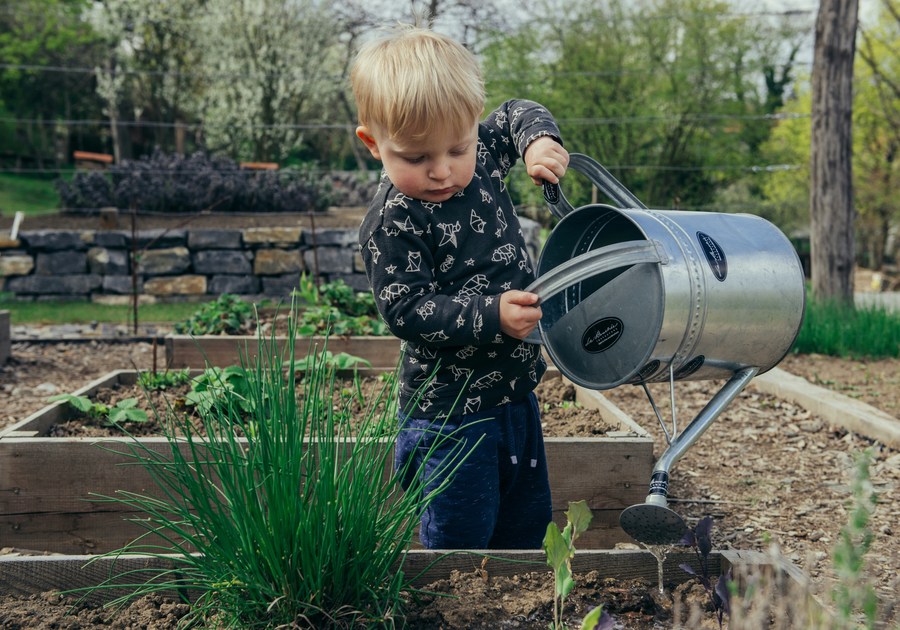Gardening is a perfect activity to grow your child’s speech and language skills - no puns intended! This simple activity can promote turn-taking, vocabulary, spatial concepts, sentence building and other developmental skills (gross motor, fine motor, coordination, and general knowledge). So take out your garden tools and get your child busy gardening.
Think about the following communication goals when gardening with your child :
Grow their vocabulary
- Gardening is the perfect activity to use different types of words: nouns, action words, opposites, spatial concepts and much more.
- Name the objects you use. Repeat the important words used when gardening (shovel, bucket, water, water pail, seeds, root, plant, sun, sunlight, gardener, garden, gardening, vegetable patch).
- Describe using specific action words (grow, scoop, pour, sprinkle, soak, sprout, garden).
- Use spatial location words (in, on, up, down, high) and descriptive words (big, small, wet, dry,).
- Introduce new vocabulary and repeat the words often. Rare or more complex words help expand your child’s vocabulary repertoire (soil, minerals, seeds, root hairs, shoot, scoop, pour, sprinkle, soak, vegetable patch). Repeat them often. Use them later in other activities (cooking, grocery shopping).
- Use opposites when you garden: “ This flower is enormous. But not this one; this one is tiny..”
Expand language skills
Enjoy this time together and simply have conversations while you are gardening during the summer.
Conversations help your child learn everyday words, grow their knowledge and expand their reasoning skills.
- Follow your child’s interest when gardening together. Be interactive. Point to different plants and make comments about them. Talk about what your child sees and does.
- From time to time, ask questions like, "Do you see the big green leaf?" or "Which seeds do you like best?" Ask them prediction questions: “Which plant do you think is going to have the biggest shoot?”
- Ask your child questions that promote thinking and perspective-taking. Questions like “What do you think the slug thinks when it sees you coming into the garden?” or “Which flower do you think the butterfly will like the most?” These types of questions get your child to think and reason on their own. This gives them the chance to develop their thinking and conversational skills.
- Repeat and expand on what they are saying. This strategy is quite helpful. It lets them know you are listening, you understand and most of all, you are interested in what they are saying.
- Talk about the steps involved when gardening –make sure those steps are easy to follow and predictable. Time after time, seed by seed, repeat the words and describe the actions needed to plant or care for your garden together.
- Read books and tell stories related to gardening and plants. “How a seed grows” is a beautiful step-by-step book on the life of a seed. “In My Backyard” offers the unique perspective of a boy and his dog enjoying a sunny day together.
Talk to your child when you are gardening. When you do, you are helping your child grow their language. Spread the seeds of language and knowledge so that your child’s language can be as bright, sunny, and open to the world as a sunflower.
It's all about interaction! Talking with your child while playing boosts their communication skills. So head outside, and watch your child's language skills soar as high as sunflowers!
What will you grow with your child this summer?
Learn more:
- Visit the First Words website at www.firstwords.ca.
- Follow us on Instagram at @firstwords_psl
- If you are concerned about your child's communication development, complete our First Words Communication Checkup online screening tool. It is free, quick and easy to use. You can screen, get results and refer if needed in one single visit to the website.


